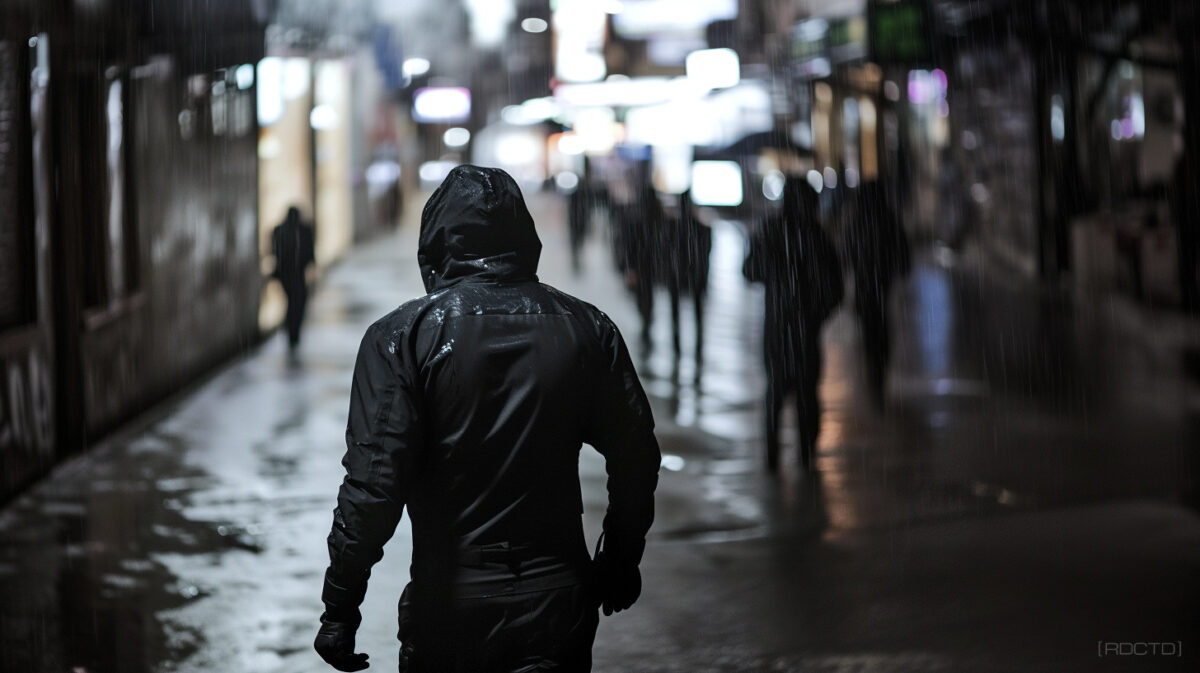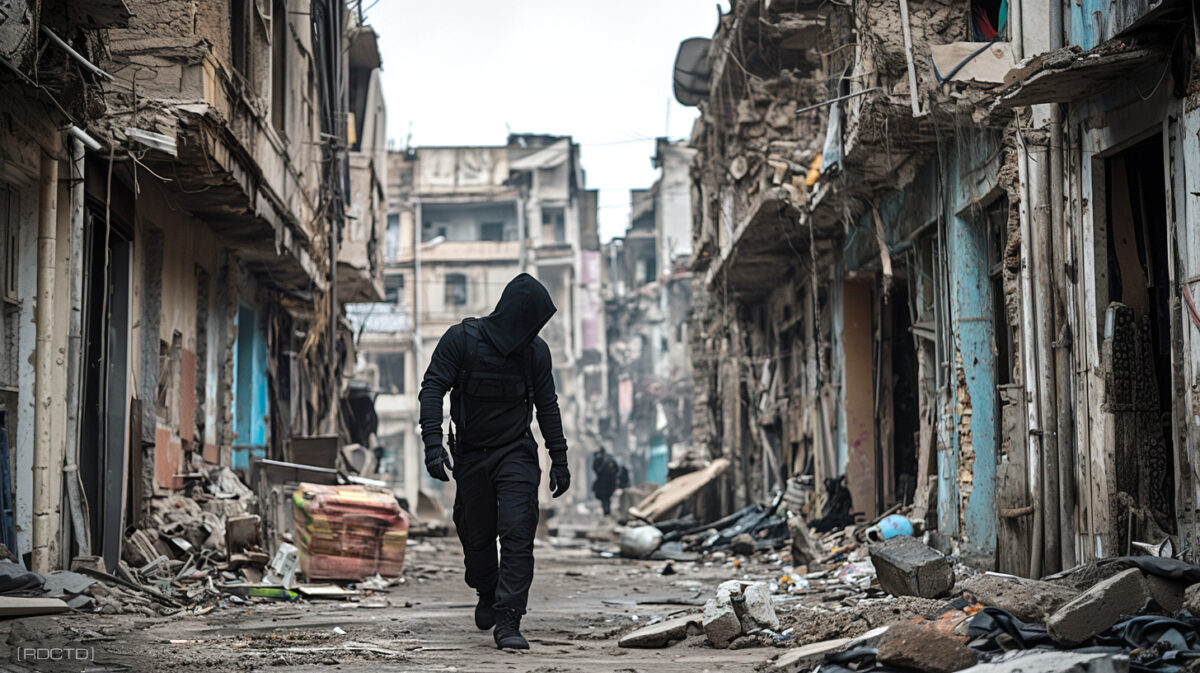 Surveillance Detection Routes (SDRs) are strategic maneuvers originally honed by covert operatives to discern if they’re being followed / watched, this is a guide for civilians to do the same in everyday life.
Surveillance Detection Routes (SDRs) are strategic maneuvers originally honed by covert operatives to discern if they’re being followed / watched, this is a guide for civilians to do the same in everyday life.![]()
They aren’t following you, they’re following a decoy ghost, the version of you that set the trap.
SDR’s can offer civilians a powerful layer of personal security and strategic situational awareness in daily life. These principles also sharpen general awareness of surroundings, helping civilians detect potential threats like stalkers, criminal surveillance, or even social engineering setups. In an increasingly unpredictable world, adopting SDR habits subtly trains the mind to live more alert, unpredictable, and difficult to track.
![]()
![]()
SDR EXPLAINED
A Surveillance Detection Route is a planned path or maneuver designed to identify whether you’re being followed or watched. For a civilian, this could mean confirming suspicions of being stalked or simply ensuring privacy and safety when moving through potentially unsafe areas.
An effective SDR relies not just on the physical route, but also on the individual’s ability to recognize patterns and anomalies in behavior around them. It merges strategic movement with heightened awareness, making it a proactive defense mechanism. As one navigates through their designated path, they must constantly evaluate the intent and behavior of those around them, distinguishing between benign presence and potential surveillance.
By consistently incorporating SDRs into your routine, you instill a heightened sense of awareness about your surroundings, which can be an effective deterrent against potential surveillance efforts. This method not only disrupts the ability of a would-be follower to maintain discreet observation but also conditions you to navigate your environment with an alert and security-conscious mindset.
This requires a blend of intuition, environmental familiarity, and the subtle use of misdirection and unpredictability to protect one’s privacy and security.
![]()
![]()

![]()
![]()
I. PLANNING THE ROUTE
The initial phase of implementing an SDR is thorough planning, which sets the groundwork for detecting and evading surveillance effectively. This involves several key steps:
![]()
Assess Your Environment
First and foremost, understanding your environment is critical. Study the places you frequent, noting busy intersections, quiet side streets, and public areas with good visibility. Observe the typical behaviors and patterns of people around these areas to spot anomalies easily in the future.
• Common Points of Surveillance: These include places where someone could easily observe you without drawing attention, such as parks, cafés, and public squares.
• Alternate Routes: Identify multiple paths to and from your frequently visited locations (e.g., work, home, gym). Alternatives should include varying modes of transport and different types of areas (residential, commercial).
![]()
Route Design
When designing your SDR, incorporate elements that will help you identify any followers without alerting them:
• Vary Your Speed: Alter your walking or driving speed. A surveillance team will need to adjust their speed to match yours.
• Change Directions: Include unexpected turns or double back on your path.
• Use Choke Points: These are narrow passages where a follower would have no choice but to follow closely, making them more visible. Examples include alleyways or a doorway.
![]()
Map Multiple Pathways
It’s essential to have not just one, but several planned routes. This variety makes your movements less predictable and harder to track. When mapping these pathways, consider different times of the day and alternate transportation methods like walking, driving, biking, or public transit, each offering distinct advantages for evasion.
![]()
Include Unpredictable Elements
Incorporate elements in your routes that allow you to subtly check for followers without making your checks obvious. For example, looping back on your path unexpectedly or walking through a mall where you can see reflections in shop windows can provide opportunities to spot anyone who’s consistently in your vicinity without them realizing you’re on to them.
![]()
Strategic Stops and Starts
Plan stops at locations where you can observe the flow of people and vehicles. A stop at a café with outdoor seating provides a reason to linger and watch if anyone is lingering unnecessarily near you. Similarly, pausing at a bookstore or making a phone call on a street corner offers chances to observe who stops with you and who continues on.
![]()
Time Your Moves
Timing can be as crucial as the route itself. By varying the times you leave for regular destinations, you can avoid setting a pattern that could be easily learned and anticipated by someone watching you.
![]()
By meticulously planning your routes with these factors in mind, you can significantly increase your ability to detect and shake off surveillance, ensuring a higher level of personal security in your everyday movements.
![]()
![]()
II. CONDUCTING THE SDR
Once your Surveillance Detection Route (SDR) is carefully planned, the execution of this route is crucial to effectively determine if you are under surveillance. Here are refined techniques and considerations to enhance the effectiveness of your SDR:
![]()
The Baseline
![]()
Observation
![]()
Low Profile
![]()
Public Spaces
![]()
Behavioral Changes
![]()
Reflections
![]()
Counter-Surveillance Techniques
![]()
Documentation
![]()
Tech Assistance
![]()
By implementing these enhanced tactics while conducting your SDR, you not only increase your chances of detecting surveillance but also develop a more profound understanding of your personal security landscape. This proactive approach empowers you to navigate your daily activities with greater confidence and safety.
![]()
![]()
III. AFTER DETECTING SURVEILLANCE
Do Not Confront
If you believe you are under surveillance, do not confront the individual. This could lead to an escalation that may compromise your safety.
![]()
Create Distance
Increase your speed, enter a populated public place, or use transportation to widen the gap between you and the potential follower.
![]()
Notify Authorities
If the surveillance persists and you feel threatened, contact local law enforcement for assistance. Provide them with any evidence you might have gathered.
![]()
Review and Adjust
After the event, review your SDR and consider what worked and what did not. Adjust your routes and tactics accordingly for future use.
![]()
![]()

![]()
![]()
SDR EXAMPLES IN USE
The Freelancer Who Trusted His Gut
A freelance journalist covering sensitive topics noticed a man lingering outside his usual café for several mornings in a row. Instead of confronting him or following his normal path home, he shifted into an improvised SDR: walking two blocks past his typical turn, ducking into a bookstore, and exiting through a back alley. He doubled his steps on a one-way street and used mirrored windows to observe if anyone mirrored his movements.
When he spotted the same man trailing a block behind, he confirmed the surveillance, rerouted to a co-working space instead of home, and encrypted his work immediately, preserving both his physical safety and his sensitive materials.
![]()
The College Student Protecting Her Privacy
A college student noticed an unfamiliar man hanging around campus more often than coincidence explained. Trusting her instincts, she began casually altering her walking routes; taking different paths between classes, randomly entering buildings she had no business in, and pausing in lobbies to see who entered behind her. She deliberately stopped at a crowded food court one afternoon, only to catch the same man hesitating at the entrance.
She quietly slipped out a back door and contacted campus security with a detailed description, ensuring the surveillance was broken without ever confronting or alarming the threat directly.
![]()
The Retiree Guarding Against a Break-In Setup
A retired veteran living in the suburbs noticed that a delivery van seemed to cruise his street too often, especially when he was coming and going. Sensing something off, he started varying his routines: leaving at different times, taking multiple turns around the neighborhood before heading to his real destination, and watching side mirrors carefully at intersections. One afternoon, he spotted the same van waiting near a side road – an area that led only to dead ends.
He immediately rerouted, went to a nearby public park, and stayed visible among crowds for a few hours before returning home. His discipline made sure his patterns remained unpredictable, denying any would-be burglars the solid intelligence they needed to make a move.
![]()
![]()
While the average civilian is unlikely to face the same level of threat as an operative, the application of SDR’s significantly enhance personal security.
[INTEL : Dynamic Gait Pattern Tradecraft]
[OPTICS : Moscow, Russia]
![[RDCTD]](https://rdctd.pro/wp-content/uploads/RDCTD-Covert-Operative-Tradecraft-Guide-LOGO-tk.png)
![[RDCTD]](https://rdctd.pro/wp-content/uploads/RDCTD-Covert-Operative-Tradecraft-Guide-LOGO-mobile.png)

